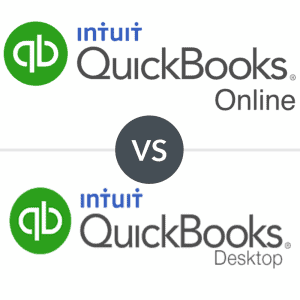Need a crash course in understanding these two different types of corporations? We've got you covered in this guide.
Our content reflects the editorial opinions of our experts. While our site makes money through
referral partnerships, we only partner with companies that meet our standards for quality, as outlined in our independent
rating and scoring system.
A corporation is a common business type, but there are different types of corporations including S-Corps and C-corps. Each has different implications for how your business operates.
Learn the pros and cons of S-Corps and C-Corps, how they are similar, and how they are different so you can choose the right business structure for your business.
What Is A C-Corp?
A C-Corp is the most basic form of corporation and grants business owners full liability protection by keeping the business as a separate legal entity, while allowing business owners to still have stocks and shareholders.
What Is An S-Corp?
An S-Corp is another type of corporation where business revenue can be passed through the business owner’s personal tax return, which can save business owners large amounts of tax deductions while avoiding corporate tax rates.
What’s The Difference Between S-Corp VS C-Corp?
S-Corps and C-corps both fall under the business type of corporation, but they are taxed differently, can take advantage of different stock options, and handle their owners and shareholders differently.
Here’s a quick breakdown of the differences between S-Corps and C-Corps:
Differences In Taxation
- C-Corp: Profits are taxed twice, first through income taxes and then when shareholders receive their dividends
- S-Corp: Profits are taxed only once through corporate income taxes at the shareholder level
The only way to avoid double-taxation if you are a C-Corp is to operate at a loss or reinvest profits back into the company. Under new tax regulations, C-Corps pay a flat 21% federal tax. Owners of S-Corps, however, can claim a 20% business deduction from their personal returns.
Talk to a tax specialist about how these differences in taxation could affect your business. And then compare to other business structures like a sole-proprietorship or LLC, which also operate as pass-through entities.
Differences With Venture Capital
- C-Corp: Stock options offered to shareholders are unlimited, which is best for growing companies.
- S-Corp: Stock options offered to shareholders are limited to one class of stock, which makes it harder to raise venture capital.
Differences With Owners & Shareholders
- C-Corp: Unlimited shareholders that don’t have to be US Citizens.
- S-Corp: Up to 100 shareholders and all (plus any owners) must be US Citizens.
These differences really come down to growth. With these restrictions, it is difficult for an S-Corp to look appealing to investors and venture capitalists, and it’s especially limiting to any business interested in growing outside of the United States.
Which Is Right For Your Business?
Here are some good guidelines if you’re still stuck.
A C-Corp would be good for your company if…
- You don’t want the time/hassle of updating S-Corp paperwork requirements.
- You want room to grow/expand ownership and stock options.
- Your company makes a significant number of charitable donations.
- You are making a profit and might want to shelter those profits.
An S-Corp would be good for your company if…
- You are fine with limited ownership options (US Citizens only, fewer than 100 shareholders, etc.).
- You have no need for expanded stock options.
- You have an excellent accountant (an audit is likely: there are specific requirements needed to maintain status and S-Corps face higher scrutiny).
- You are just starting out and might still be losing money.
S-Corp VS C-Corp Next Steps
Size and tax structure are the two main differences between S-Corps and C-Corps. Once you’ve decided there is a benefit to incorporating, there will be paperwork and hoops to jump through in order to begin paying corporate tax rates and earning stock options.
Get Your Taxes In Order
Each state has different tax requirements and corporate business tax rates, so it’s important for you to work with a local tax expert to run numbers on your own specific tax situation.
Business structure is an important component of the information your accountant needs to prepare your tax return, but our ultimate small business tax checklist should help you determine what else you need to provide.
Are you completely new to accounting? Check out our guide to important accounting terms, then look at the best accounting software for small businesses.
Register Your Business
Once you’re ready to incorporate, you’ll need to register your company.
When you’re registering your company as a C-Corp, you’ll want to hire an attorney familiar with the process and pay the state-specific $100-$800 fee. After you draft and file your articles for incorporation, pay your business licensing and corporation fees, and acquire your tax identification number, you’ll be ready to start operating as a C-Corp.
Registering your company as an S-Corp is similar to registering as a C-Corp. After you’ve filed your articles of incorporation and paid the fees, you can go forward and register Form 2553 with the IRS.
Consider Other Business Structures
Not sure if incorporation is the best option for your business? There are plenty of other options to help protect yourself and your business as you begin your journey. Start by reading our complete guide to business structures to find an option that works better for your business.










